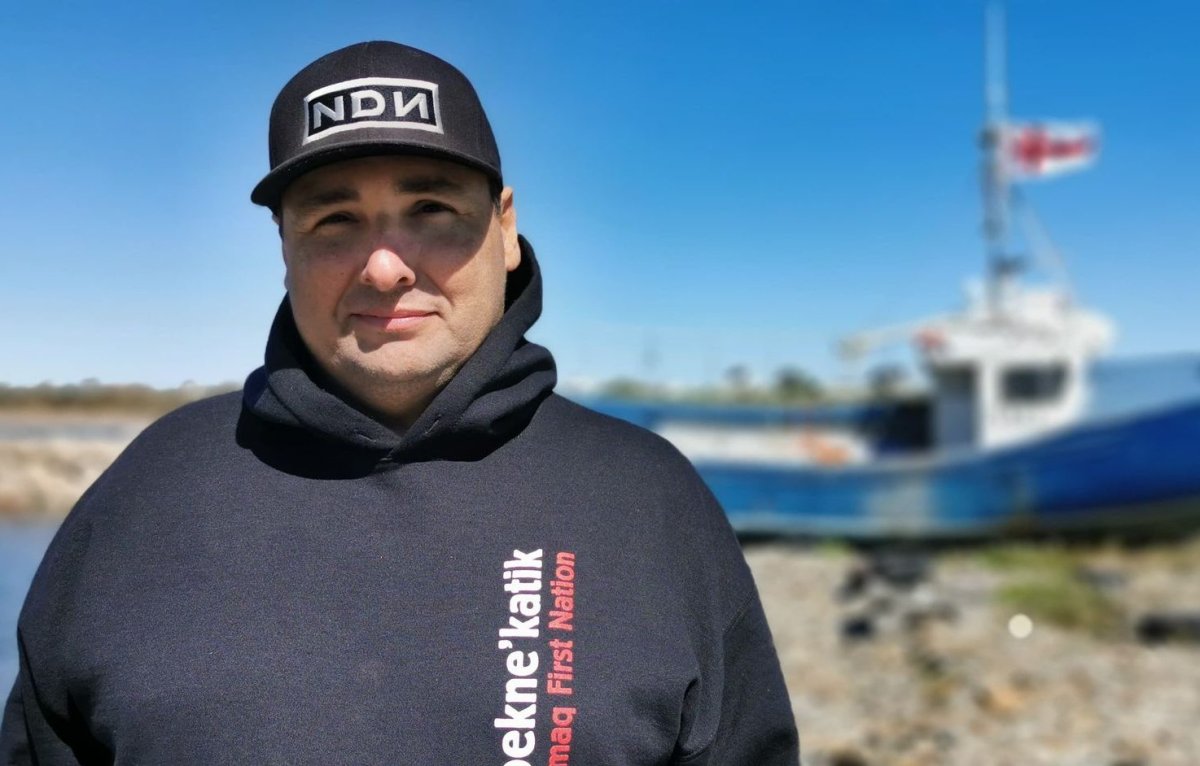Non-Indigenous fishermen have begun removing lobster traps set by fishermen from the Sipekne’katik First Nation in the waters of western Nova Scotia on Sunday.

Colin Sproul, of the Fundy Inshore Fishermen’s Association, said about 100 boats were removing the traps, and fishermen were intending to take them to the wharf in Meteghan, N.S., later in the day.
Sproul says the fishermen are taking action on what they believe is an illegal out-of-season fishery because the Department of Fisheries and Oceans has refused to do so.
“It’s not going to take very long,” Sproul said of the operation. “All of our members have been instructed not to engage with any Indigenous people or any types of violent acts. We are just looking to remain peaceful.”

But the Sipekne’katik First Nation insists the members of its self-managed lobster fishery have a treaty right to fish at any time.
The Sipekne’katik First Nation launched its own self-managed lobster fishery last week, marking the 21-year anniversary of the affirmation by the Supreme Court of Canada of the right of Indigenous groups in Eastern Canada to hunt and fish for a moderate livelihood.
Five lobster licences have been issued to members of the Sipekne’katik First Nation, with each limited to using 50 traps.

But the establishment of the fishery has been met by fierce and heated opposition by non-Indigenous commercial fishermen. They say that the First Nation has no right to launch its own commercial fishery because the fishing season is now closed.
Two people were arrested on assault charges Friday after confrontations between the two sides. The two have since been released from custody.
On Saturday, Indigenous fishermen set up a blockade of rope and lobster traps at each end of the wharf in Saulnierville, N.S., in what they called a security measure.
Earlier this week Indigenous fishermen alleged that ropes securing some of their lobster traps had been cut.
That trend continued with Sipekne’katik First Nation Chief Mike Sack saying on Sunday morning that more lobster traps had been cut at the Saulnierville wharf.
The additional lines being cut comes after Sack and Fisheries Minister Bernadette Jordan had a “positive meeting” to “discuss a path forward” on Saturday.
“The minister was very concerned about the vandalism and acts of aggression that have taken place and expressed her support in taking all measures necessary to protect our people as we continue to exercise our constitutional right to fish for a moderate livelihood,” Sack is quoted as saying in a Sipekne’katik press release.
Sack described the news of additional lines being sabotaged as “disheartening.”
He told Global News in an interview on Sunday that he’s calling for additional donations of traps to replenish the gear that has been sabotaged.
The RCMP continues to have an active presence in the area. In a statement, Corp. Andrew Joyce confirmed no arrests were made overnight.
Indigenous fishermen and RCMP were documenting the actions of the non-native fishermen on Sunday.
“The RCMP are doing a great job and keeping everything calm here on the land,” said Sack in an interview on Sunday, saying that an RCMP police boat and a helicopter has been patrolling.
However, he added that RCMP may need additional resources as the Sipekne’katik fishermen continue to harvest this week.
“The general public just needs to be to know that we’re not here to fight with commercial fishermen. We’re here to exercise a right and have the government uphold our treaties,” said Sack.
“The commercial fishermen just need to respect what we’re doing. We’re not here to hurt them or our industry.”
Joyce said the force is committed to ensuring “public and police safety, and to keep the peace.”
Despite a photo circulating online that showed the force’s armoured vehicle, which the RCMP refers to as a tactical armoured vehicle (TAV), Joyce said on Saturday evening that the force is “not planning to bring the TAV to the Saulnierville/Meteghan area.”
In an email, DFO spokesman Stephen Bornais said Sunday that “the safety and security of all harvesters is our first priority.”
Bornais said Canadian Coast Guard vessels were in the area to monitor the situation, to provide support upon request, and to ensure that sufficient search and rescue capacity is present in the area in case it is needed.
“DFO is co-ordinating with local law enforcement to ensure fishing interactions in the area remain safe and respectful,” he said.
With files from the Canadian Press
- 2 teens charged with murder in case of 16-year-old killed outside Halifax mall
- Green Party deputy leader given jail sentence for Fairy Creek old growth protests
- Cars torched, explosions heard in suspected arson in Montreal neighbourhood
- Gas station clerk stabbed several times during violent attack at Ultramar in Montreal





Comments